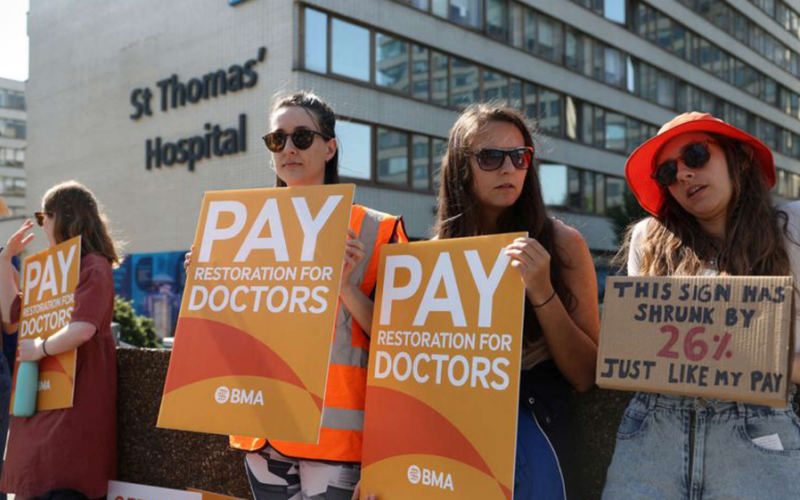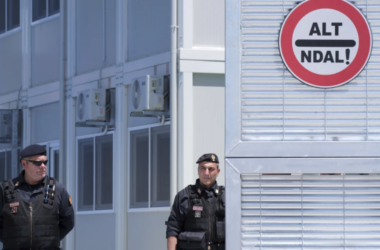Junior doctors in England have escalated their industrial action, embarking on their most significant strike to date, a move that hospitals warn could jeopardize emergency care services during one of the busiest periods of the year. The British Medical Association (BMA), representing approximately 50,000 junior doctors, has announced a three-day walkout beginning Wednesday, with a subsequent six-day strike scheduled from January 3 to 9. The ongoing dispute revolves around issues of pay, with hospitals bracing for potential disruptions and the extended January strike touted as the longest in the history of Britain’s National Health Service (NHS).
Negotiations between junior doctors and the government collapsed after the doctors rejected a pay raise offer ranging from 8 percent to 10 percent. Seeking a 35 percent improvement, junior doctors argue that such an increase is necessary to offset the cumulative impact of inflation over several years. The discontent among junior doctors has led to a prolonged standoff, with their industrial action serving as a focal point in the broader discourse on healthcare worker compensation within the NHS.
Cheltenham General Hospital has already announced the closure of its accident and emergency department during the strike period, citing a “very challenging environment.” Hospital administrators in London have issued an urgent appeal to the public, urging the use of A&E services exclusively for “real emergencies” during the strike. The timing of the walkouts, taking place in quick succession over the Christmas break, adds an additional layer of complexity to the situation, heightening concerns about the strain on emergency services.
Responding to the strike, British health minister Victoria Atkins emphasized that significant contingency measures had been implemented to minimize disruption. She expressed a willingness for the BMA to return to negotiations, keeping the door open for dialogue. The government has successfully negotiated fresh pay deals with other healthcare worker groups, including nurses and senior doctors, alleviating the threat of strikes from those segments. However, the impasse with junior doctors persists, contributing to the broader challenges facing the NHS.
The industrial action within the NHS this year has resulted in the cancellation of 1.2 million operations and appointments, impeding the government’s efforts, led by Prime Minister Rishi Sunak, to reduce waiting lists—a key priority. While pay deals have been reached with various healthcare professionals, the ongoing dispute with junior doctors underscores the complexity of addressing compensation issues within the NHS.
Reacting to the breakdown in negotiations, Britain’s work and pensions minister Mel Stride expressed regret at the junior doctors’ decision to walk away from talks. The situation raises concerns about the strain placed on the healthcare system, the potential impact on patient care, and the broader implications for the ongoing dialogue surrounding fair compensation for healthcare workers.
As junior doctors in England intensify their strikes, the healthcare landscape faces heightened challenges, particularly concerning emergency care provision. The standoff between junior doctors and the government over pay continues to reverberate within the NHS, underscoring the complexities of addressing compensation issues within the healthcare sector. The consequences of prolonged industrial action on the NHS and the broader implications for patient care and waiting lists remain key areas of concern, demanding attention and resolution in the interest of both healthcare professionals and the public.








